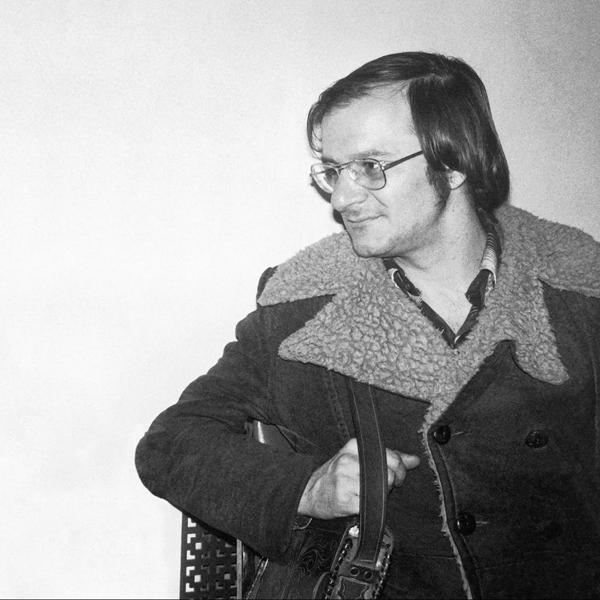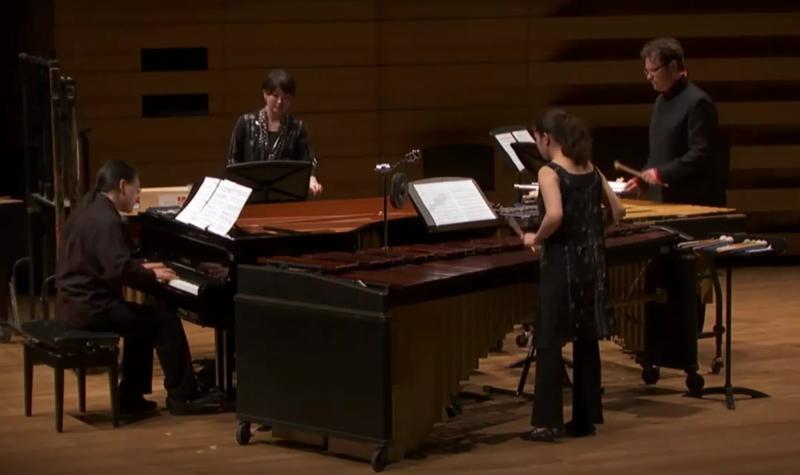Who is Claude Vivier?

He’s been described as ‘the most famous composer you’ve never heard of’, but who is, or indeed was, Claude Vivier?
Well the short answer is a Canadian composer whose works focus obsessively on themes of love, death, loneliness, childhood, eternity and the afterlife. But there is much more to him than that. And so as we get ready to host a trio of concerts at the Southbank Centre on 6,7 & 8 May celebrating Vivier’s works – a London Sinfonietta recital of arguably his most famous work, Lonely Child, followed by back to back performances from the Canadian collective Soundstreams – it felt only right to delve a little more into the world of Vivier, and find out more about this lesser known artist.
He never knew his natural parents
Claude Vivier was born in Montreal in 1948; his natural parents were never known to him, and he was adopted by the Vivier family when aged two and a half. Through singing in his school choir he became interested in music and religion, and initially entered the seminary before switching his focus to music. From 1967 Vivier studied at the Conservatoire du Montreal, and In 1968 he received a Jeunesses Musicales du Canada Award to study piano with Karl Engel.
‘What I have to say, I must say with music. I can't say it with words. That's the problem. I can talk and talk around music, but it's more difficult to talk about music as such, the music itself.’
He studied under Karlheinz Stockhausen
In 1971 Vivier was given the opportunity to travel to Europe through a Canada Council grant. At first he travelled to Paris, where he studied electroacoustic composition at the Institut de Sonologie, before moving to Cologne. Here he studied composition with Stockhausen, although it took some time to convince the composer of his talent, with Stockhausen apparently having first refused Vivier as a student owing to his lack of experience.

His route to becoming an established composer wasn’t an easy one
Though he had experienced relative success in Europe, with some of his works performed in Cologne, Paris and Darmstadt, Vivier initially struggled to make inroads in the Canadian music scene. He was welcomed warmly on his return to Montreal in 1974, but soon found himself in an environment of little opportunities and scarce facilities. To help make ends meet, he worked as a demonstrator in a Montreal organ store, until more commissions finally began to come his way.
His musical direction was shaped by his travels to the Far East
Vivier’s music was greatly influenced by the places he visited; with a stay in Bali in 1976 making a particular impression on the composer. Several of his subsequent works drew on the atmosphere and soundscape of the Indonesian island and its people. Among them Pulau Dewata (Island of Gods) a piece of nine melodies, specifically dedicated to the people of Bali. Describing the work Vivier said ‘I wanted to write a piece imbued with the spirit of Bali: its dances, its rhythms and, above all, an explosion of life, simple and candid’.

Though revered for his music, he wasn’t always easy to love
‘Vivier did seem to set his course to self-destruct, which makes it very hard to separate the life from the art,’ explained Tim Williams, the artist director of Psappha, when speaking to The Guardian in 2008. It’s an observation which matches with apocryphal stories of Vivier often making outlandish personal remarks in order to create scenes at social functions, and perhaps led to the description from one biographer of the composer’s distinctive laugh as ‘machine-gun laughter that grated on nerves’. Yet though his public manner could be audacious and often disagreeable, his closest friends maintain that he was always a composed and courteous individual in private.
‘Claude Vivier lived a life that we had thought extinct, that of the doomed creative genius, casting off masterpieces from an unstoppable ride into the abyss.’
His music drew from a great breadth of influences
Vivier often looked beyond music for inspiration for his work; this is particularly evident in his 1977 composition Love Songs, which draws from nursery rhymes, Hemran Hesse’s love poems, and spiritual songs by the German romantic poet Novalis. The work was composed for the modern dance company Le Groupe de la Place Royale; a vocal piece for non-trained voices. As Vivier himself said of the composition, ‘What I was looking for was a normal voice. In the case of love, when you talk about love, you don't use your technically trained voice to talk about it. You use this very natural voice that you or I or anyone has. It gives an aura of a very intimate quality, which is very important to the piece.’
‘It’s not I who write my music. Perhaps it’s the flowers I have smelled, the gestures I made, the people I have seen, or the stars… One never knows. Music is Love, as everything is love.’
One of his compositions has been described as ‘unplayable’
Vivier's Cinq chansons pour percussion is widely regarded as one of the most challenging works in the contemporary percussion repertoire. Another work inspired by his time in Bali, it is written for metal instruments, usually found in Indonesian gamelans or percussion orchestras. Soundstreams’ percussion soloist Ryan Scott has described the work as ‘famously unplayable, like an entire gamelan played by a single musician,’ and has said that to learn to play it, ‘you commit to it for the rest of your life. It's a masterpiece.’
Loneliness permeated his life and work
As well as a theme often returned to in his compositions, loneliness also ran through Vivier’s personal life. Led by feelings of rejection that stemmed from him of knowing his parents, and a later fall-out with his adoptive mother, its believed that Vivier’s his sense of isolation from societal norms was enhanced by his open homosexuality. This sense of a solitary, isolated existence was projected most clearly by his 1980 composition Lonely Child, which has been viewed as an emotional self portrait by the composer.
As Vivier himself said of the music; ‘It tends towards a new sensitivity, a sensitivity that I have always perceived, all my life, in the people neglected and left behind by society… an idea my mother and father always imposed on me, inspired a vision of an inaccessible world in a life where money and power are everything. A life of solitude. So it is above all of these solitary humans that I think when I write music, I no longer think of the ‘future’ or the ‘past’ but of a kind of lost present, an impalpable joy mixed with the sadness of a child who has lost its mother.’
He was killed tragically young
Vivier died a month short of his 35th birthday, in March 1983. In a Parisian bar, the composer met a man, and invited him back to his apartment. It was the last time Vivier would be seen alive. After he failed to attend meetings and scheduled phone calls, the local authorities broke into his home to find his body beneath an overturned mattress. He had been stabbed multiple times by the man he invited home. In a tragic and haunting twist, on the composer’s desk lay the unfinished manuscript for his final work, Glaubst du an die Unsterblichkeit der Seele? (Do You Believe in the Immortality of the Soul?), in which the music breaks off abruptly following the line: ‘Then he removed a dagger from his jacket and stabbed me through the heart.’
‘I'm convinced that if he had lived, he would have become an icon of contemporary music. He came from Canada, but it seems as if he belonged to a different planet.’
His music continues to influence artists posthumously
Vivier’s music has enjoyed something of a revival in the 21st century, but that it remains to be discovered at all is largely thanks to his close friend Therese Desjardins who, in the years after his death, sought to preserve his music through concerts and publications of his works. Among the new generations of musicians to discover and revere Vivier’s distinct compositions are fellow Canadians Soundstreams, who continue their celebration of the composer’s life here with us in May.


On 6, 7 & May we present a trio of concerts celebrating the works of Claude Vivier. They begin with London Sinfonietta presenting the masterwork Lonely Child, before two concerts from Soundstreams.